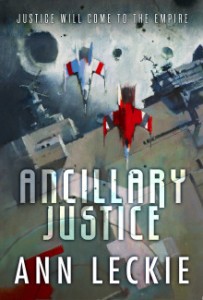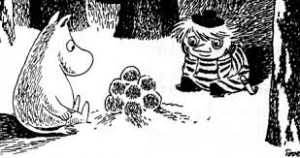
What: Ancillary Justice by Ann Leckie is a fabulous space opera with an unusual protagonist whose struggle will pull the reader in. It is, alas, not a particularly long book, and I could have read at least twice more the length happily.
Who: read this if you like space opera or action-filled but character driven SF. Read it if you want to hear the latest in the ongoing conversation about gendered pronouns held between SF writers for decades now. Read it for the sake of enjoyment and rejoice to know it’s the first of three.

Why: Read this because it will be appearing on many of the awards ballots this year and rightly so. Read it so you know why you’re voting for it. Read it because it does new and interesting things. Read it because it’s good.
Where/how: This is ideal for a while-away-some-hours situation, depending on your reading speed. Leckie’s world is immersive, intelligent, and interesting.






One Response